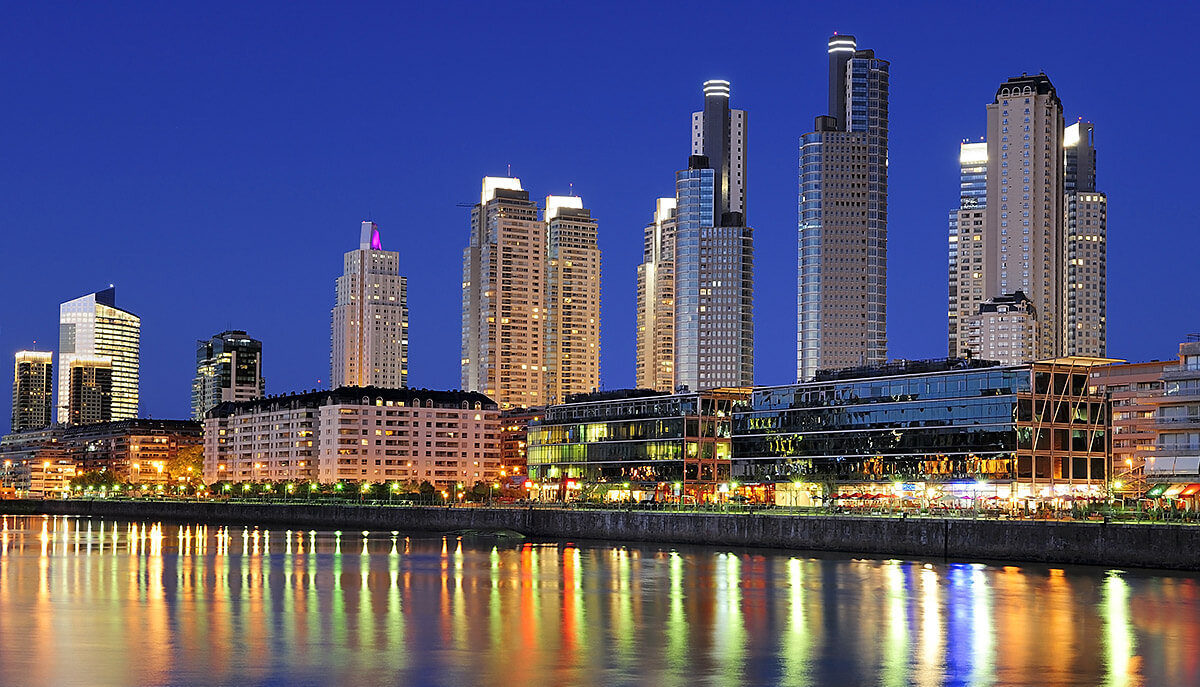Following a relatively free summer and the waning of Covid, it might seem like the world has finally moved on from the pandemic and strict mandates are a thing of the past.
This may be the case for most of Europe, Mexico, and the like, but it is not yet a reality in South America, where only a single country has dropped all travel restrictions.
For more than two years, the Southern Hemisphere has barred international travel in an attempt to keep variants from getting imported from abroad.
Despite enjoying robust protection, with countries like Chile being world leaders in vaccination coverage, the region has refused entry to specific categories of travelers, most notably the unvaccinated or not fully vaccinated.

South America is an incredibly vast, culturally diverse continent that has attracted American tourists for decades due to its high affordability and natural landmarks.
Sadly, for the better part of 2022, roughly 30% of Americans are still prevented from returning based on their vaccination status.
Nearly every South American country continues to impose a vaccine requirement at their external entry points, land crossings, airports, or cruise terminals.
Out of twelve, only one had mirrored the steps of Central American counterparts and Europe when it became the 27th country to return to its pre-2020 entry guidelines: Argentina.
Argentina is the first in Mercosur, and to an extent in South America, to lift the pandemic-era restrictions affecting international travelers and other foreign visitors.
As soon as April 2022, the home of Tango abandoned its hard-stance approach, which had made it into a completely isolated nation for a period, in favor of much more relaxed policies.
Before that date, even Mercosur citizens, a bloc of which Argentina is a part of and where freedom of movement applies, had been barred from crossing the border.
Now, any foreigner can enter Argentina, irrespective of their purpose of travel, and with no other requirement than a valid passport and/or visa when applicable.
For South American lovers, this effectively means:
- No vaccination required
- No boosters needed
- No pre-departure tests
- No post-arrival tests
- No quarantine
Conversely, all of Argentina’s neighbors remain ‘partially restrictive’, according to IATA’s Covid-19 Travel Regulations Map.
Much like the EU in the earlier days of the crisis, Mercosur and its associated members have failed to coordinate actions in introducing and removing pandemic measures, leading to a confusing patchwork of rules.
On the other hand, European states have worked through their differences, and now a majority is open to travel.
Below the Equator line, this level of cross-border harmonization has not been achieved as of this point.
The most obvious disparity is seen between Brazil and Argentina, South America’s closest neighbors and top destinations.
CONFUSING PATCHWORK OF RULES
While Argentina is open, Brazil is the red lantern and only allows international visitors with proof of vaccination.
A negative PCR or rapid antigen test, or even recovery certificates, are not considered valid proof of entry, though in Uruguay, bordering Southern Brazil, unvaccinated foreigners are permitted to enter when presenting a negative test within 72 hours of departure.
Moving West, Paraguay accepts all of the above, on top of positive Covid tests (antigen, LAMP, NAAT, or PCR) issued ‘at least ten days and at most 90 days before boarding’.
On the Pacific Coast, Chile accepts both vaccine certificates and PCRs not older than 48 hours, and travelers remain subject to testing on arrival, a controversial policy also enacted by Canada.
North of Chile, the Inca heartland of Peru, a favorite among hikers, has similar provisions, except it does not test tourists randomly upon landing.
Bolivia, Colombia, Ecuador, Venezuela, and Suriname all follow the ‘vaccine or test’ model, while Guyana – not the French one – mimics Brazil in banning those who are not fully immunized.
Other regional discrepancies include:
- In Peru, tests must be of the NAAT kind, including RT-PCRs and RTLamps, and they must not be older than 48 hours
- Bolivia accepts PCR test results issued within 72 hours of departure, or Rapid Antigen tests are taken at most 48 hours before boarding
- In Colombia, besides the 72-hour/48-hour rules for PCR and Rapid Antigen, respectively, passengers must submit their personal information online via the Check Mig form ahead of traveling
- Venezuela imposes a validity date of 270 days on two-dose certificates, requiring tourists to present proof of a booster dose once this period has elapsed to be granted entry on the grounds of being immunized
- Venezuela only accepts PCR test results obtained 72 hours preceding arrival, as opposed to departure
- Guyana arrivals may be subject to random Covid tests on arrival, even when fulfilling other criteria such as being vaccinated
- Suriname’s pre-departure test validity is 48 hours for PCR, 24 hours for Rapid Antigen
Suriname is accepting recovery certificates issued up to 6 months before the date of travel
BOTTOMLINE
As you can see, the rest of South America has much catching up to do with La Tierra de Los Hermanos and other Central American competitors in terms of post-pandemic management.
As things stand, it is one of the strictest continents to travel to right now unless visitors qualify for exemptions as vaccinated foreigners or returning residents.
Luckily, Argentina’s up-and-coming digital nomad hub, a poster nation for travel freedom, welcomes international travelers with open arms.
With information from Traveloffpath

